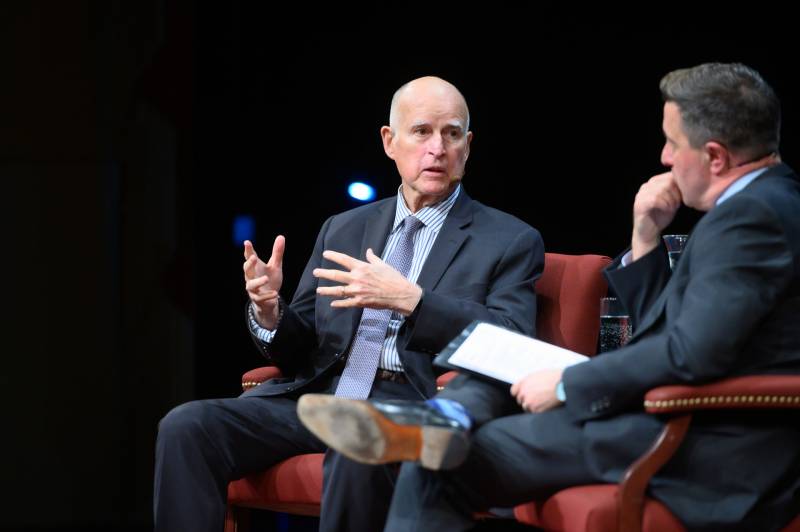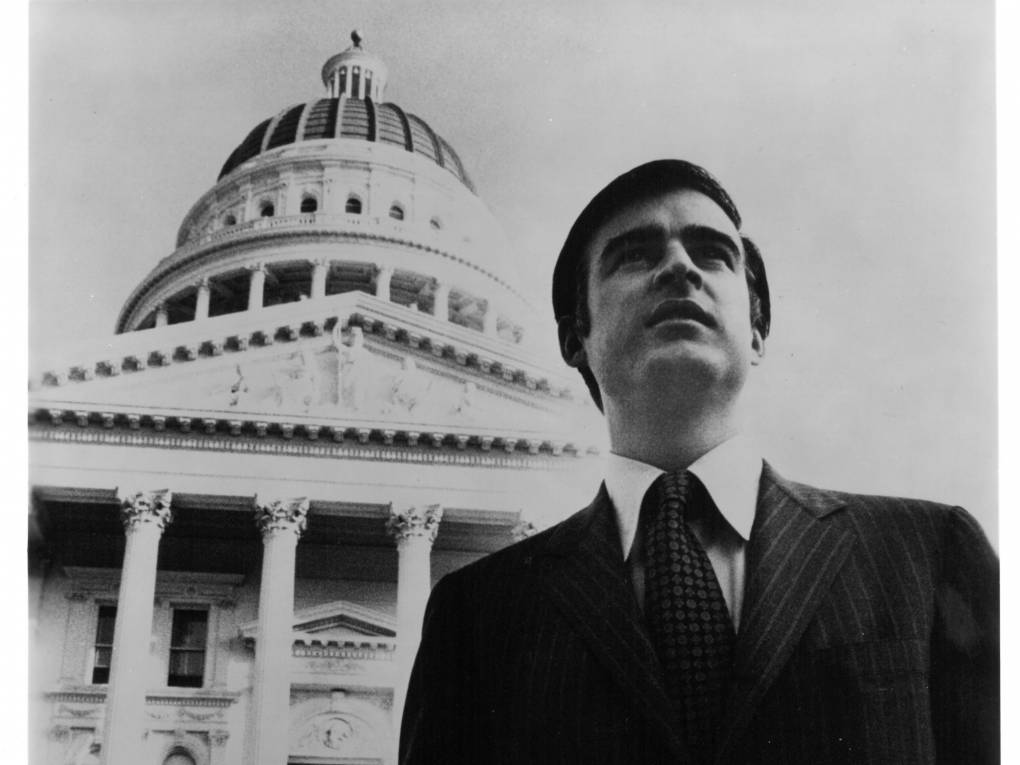A focus on existential issues facing America, namely climate change and the threat of nuclear blunder, should be given higher priority by the Democratic candidates for president, former California Gov. Jerry Brown said.
“I do think survival has to trump domestic issues,” Brown told a live audience at San Francisco’s Herbst Theater on Monday night.
Brown shared thoughts on the 2020 election, and his views on state and national politics at the launch of KQED’s new series about his life and career, “The Political Mind of Jerry Brown.”
A three-time presidential candidate, Brown lamented the focus on domestic policy divisions between the candidates — both in their stated plans and questions asked during debates.
“I think there is a disconnect between the process of selecting the president, and what the president has to do when he gets there,” Brown said.


